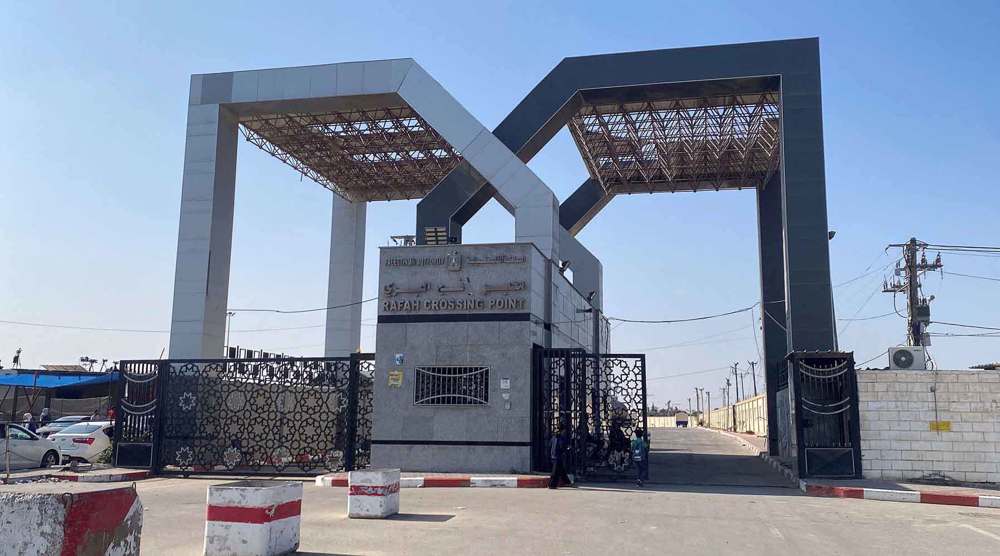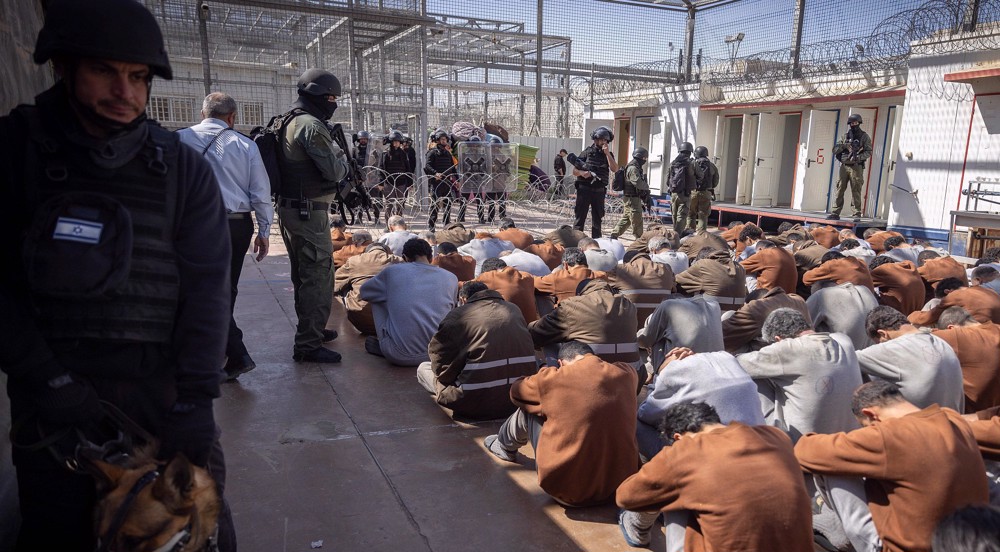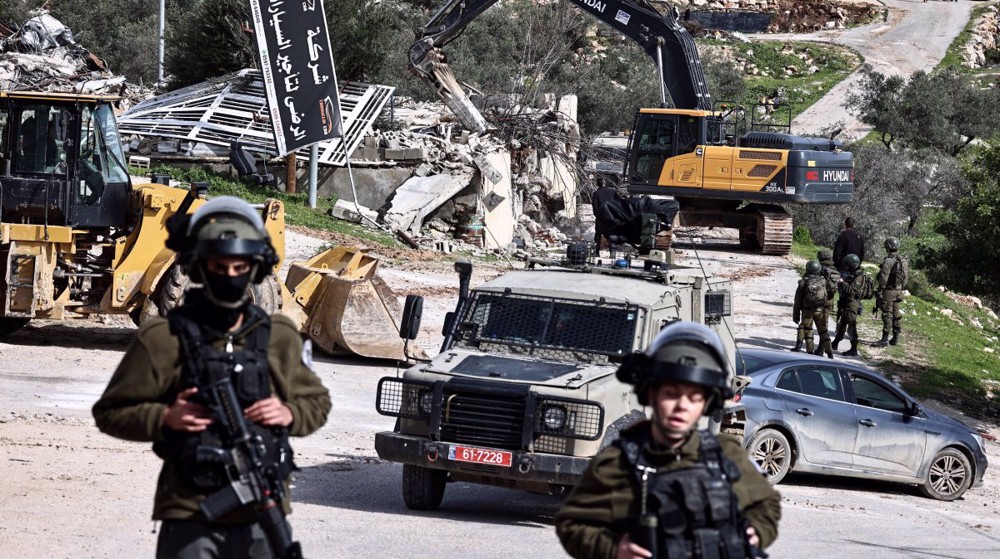Hamas slams Israel killing of 2 Palestinians in West Bank
The Palestinian resistance movement Hamas has condemned the Tel Aviv regime for a deadly shooting attack by its troops on Palestinians in the occupied West Bank, lambasting the move as a vivid sign of the regime’s “criminal mentality.”
Israeli soldiers shot dead two young Palestinian men and wounded another one near Kafr Ni’ma village in western Ramallah in the early hours of Monday.
The Israeli military claimed in a statement that the Palestinians attempted to carry out a car-ramming attack against its personnel, adding that they also threw some Molotov cocktails toward the troops.
Hamas, in a statement issued later in the day, called the crime as “a reflection of the Israeli occupation forces’ criminal mentality” and stressed that such crime further vindicated the need to rid the Palestinian territory of occupation.
The resistance movement, which is based in the besieged Gaza Strip, also called on the Palestinian resistance in the occupied West Bank to respond to the Israeli crime of killing the two Palestinians.
Hamas further expressed its belief that the resistance’s retaliation would be according to the size of the crime.
The Israeli military also said in its statement that one of its officers at the scene had been critically injured and a soldier had received light wounds.
The Israeli military regularly opens fatal fire on Palestinians, accusing them of seeking to attack its personnel.
Human rights groups have repeatedly slammed Tel Aviv for its shoot-to-kill policy as a large number of Palestinians killed at the scene of attacks did not pose any serious threat to Israelis.
Israeli troops have on numerous occasions been caught on camera brutally killing Palestinians, with the videos going viral online and sparking condemnations of the regime’s military.
Hamas chief warns Israel against adventurism
In another development on Monday, Ismail Haniyeh, head of the political bureau of the Palestinian Hamas resistance movement, warned Israel's Prime Minister Benjamin Netanyahu against any military "adventure" in Gaza.
“If the (Israeli) occupation or Netanyahu think of an adventure, I think they will pay the price that will send them away," Haniyeh told reporters when asked about a potential Israeli military operation.
He added, “We do not fear any adventures from Netanyahu towards Gaza... The resistance has its eyes open."
Haniyeh also slammed Israel of breaching an informal truce agreement struck in November, under which Israel would allow aid from Qatar to enter Gaza in exchange for calm on the border.
Stop violations against al-Aqsa: Arab League to Israel
Separately on Monday, the Arab League urged the international community to exert pressure on Tel Aviv to halt its “grave violations” against al-Aqsa Mosque.
Ahmed Aboul Gheit, the secretary-general of the regional organization, also called Israeli violations in the mosque compound “a dangerous escalation.”
He also denounced the regime’s policy of preventing Palestinian Muslims from praying at the site by sealing a gate leading to the Bab al-Rahma Mosque, one of the several mosques located in the complex.
On Sunday, Israeli police banned Waqf Council chairman Sheikh Abdul-Athim Salhab from entering the sacred site for the next 40 days. The regime also banned Najeh Bkerat, the deputy director of Muslim Endowments and al-Aqsa Affairs, from entering al-Aqsa Mosque for four months.
Last month, the Israeli regime had banned the very figures from entering the compound for a week after the duo opened the seal of a gate leading into Bab al-Rahma and let hundreds of Muslims hold prayers there for the first time in 16 years.
Bab al-Rahma, with an eponymous gate, consists of a large building and a courtyard that lie east of the 35-acre sacred al-Aqsa compound. Inside the compound are the two Muslim holy shrines of the Dome of the Rock and the al-Aqsa Mosque.
In 2003, Bab al-Rahma was sealed by Israeli authorities after they claimed it was being used by Palestinians for political activities. Israeli authorities renewed the restriction order annually until an Israeli court ordered the building closed until further notice in 2017.
The reopening of Bab al-Rahma followed days of tension between Israeli forces and Muslim religious authorities over access to the compound.
The al-Aqsa Mosque compound is a flash point, highly respected by Muslims, Jews, and Christians alike. The mosque is Islam’s third holiest site after Masjid al-Haram in Mecca and Masjid al-Nabawi in Medina.
VIDEO | Criticism grows over Pakistan joining Trump-led 'Board of Peace'
Iraq’s dominant political bloc nominates Nouri al-Maliki for prime minister
Israel moves to restrict Palestinian re-entry to Gaza, ‘encourage outflow’: Report
VIDEO | Iran warns enemies against new 'adventurism'
VIDEO | Venezuelans demand return of their president Nicolás Maduro
Muslims facing ‘major confrontation’ led by US and Israel: Hezbollah chief
Palestine Action activist at risk of death after beginning thirst strike in UK jail
VIDEO | South Korean supporters of Palestine slam Trump's 'Board of Peace'














 This makes it easy to access the Press TV website
This makes it easy to access the Press TV website